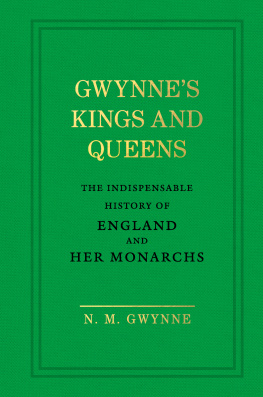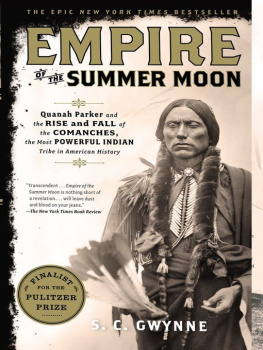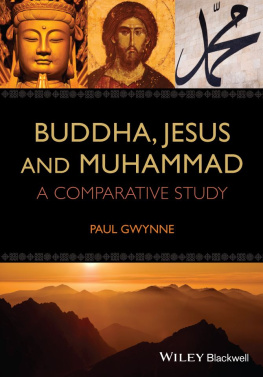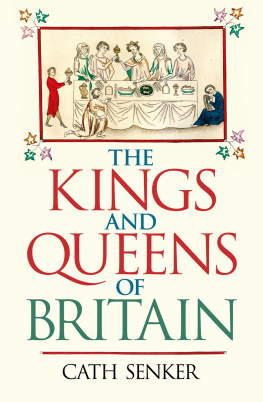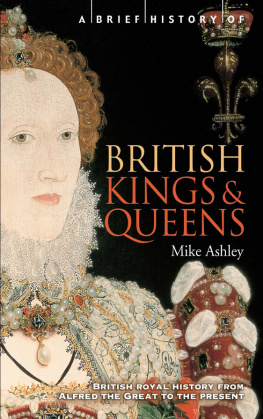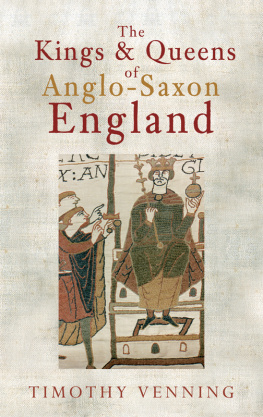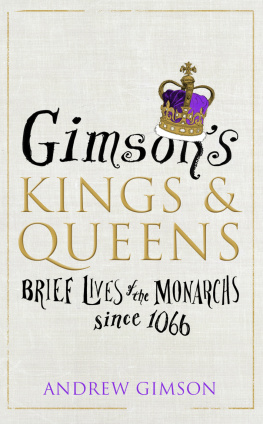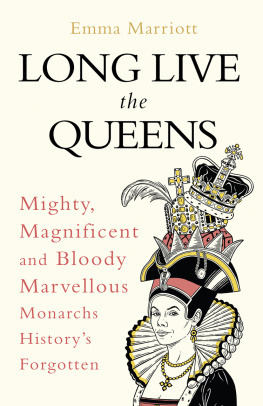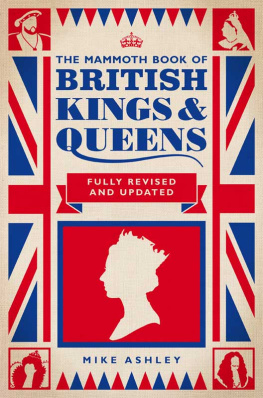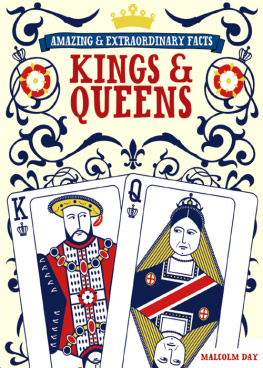CONTENTS

ABOUT THE BOOK

Do you know your Kings and Queens of England by heart? Can you tell your Ethelred from your Ethelbert? Your Marcia from your Matilda?
Well, passionate educator Mr Gwynne is back and this time he is taking on the entirety of British history so you will never be in the dark again. Within the pages of this little gem bursting with our small islands rich past he teaches us the history of England through her remarkable monarchs.
It is Mr Gwynnes belief that a certain amount of what you might read in other history books may well be wrong. It is his aim to show you why.
Concise, thorough and utterly fascinating, this is the perfect book to be enjoyed by young and old, to be read at a time when, for many, harking back to our rich past seems much more preferable than living in the dreary present.
And when it comes to the benefits of education, Mr Gwynne is never wrong!
ABOUT THE AUTHOR

Mr Gwynne is the much loved and passionate educator who is on a crusade. He believes in old-fashioned values, that the modern school system is hopeless and that keen and close study is the only way to become an enlightened and better person. Now living in County Wexford, Ireland, and in his 70s, N M Gwynne was formerly a successful businessman in London and Australia. On retirement in the 1980s, he took up teaching and soon found that his traditional methods, universal up to the 1960s and refined and perfected century after century up till then, had become all but unique. Subjects he has been teaching in classrooms, in lecture halls, and nowadays mostly privately include English, Latin, Greek, French, German, mathematics, history, classical philosophy, natural medicine, the elements of music, and How to start up and run your own business. He has taught all over the world and thanks to the internet and Skype, he has sometimes found himself, at different times in a single day, teaching as far apart as India, Europe and western USA.
Also by N. M. Gwynne
Gwynnes Grammar
Gwynnes Latin
To the Family that today represents the subject-matter of this book.
Preface

THIS BOOK IS intended to be useful for everyone, of whatever age and intellectual status: for children emerging from infancy at the age of about five, though only for them; for schoolchildren as a standard textbook; for adults in general; some of it I dare to hope even for the erudite.
It is intended, too, as a much more serious, and also more interesting, work on history than its size and appearance might suggest. Certainly, I have taken with the utmost seriousness the task of putting it together, and I believe for good reason. The reality is that our countrys history is a fundamental part of what we actually are. The society we live in and its institutions that affect us are the result of our countrys history up to this point of time. To know our history, therefore, is to help us to know ourselves, as well as much else besides.
For a societys members to know its history is also important to that society, and therefore to its members. As the great nineteenth-century French scholar Gaston Paris put it, There is no better measure of a peoples civilisation than its interest in its own history.
Acquiring an adequate knowledge of the history that is part of us is therefore something that we should certainly do. This does involve considerable effort, but, in the case of Englands history, there is the compensating factor that, consistently, it is history that is absorbingly interesting. Indeed I doubt whether any other country anywhere has a history more remarkable in every way than ours.
We can now readily appreciate why the teaching of history always used to be considered an important part of education, and almost from infancy.
Regrettably, in the child-centred atmosphere that dominates all education today, acquiring a thorough and orderly knowledge of English history is no longer considered practical or even appropriate. What is made to count overwhelmingly today is no longer whether knowledge of history is important, but whether children will find studying it interesting and enjoyable.
The result has been unfortunate, even tragic. As I know from my considerable experience as a teacher, the knowledge of history acquired by children by the time they leave school is, and has been for some decades, almost invariably minimal only a very small percentage of what everyone used to know.
It is against that background that the position taken in this book is that the basics of the entirety of English history should be taught systematically and in reasonable depth. In the case of children, moreover, whether or not they enjoy the learning should be considered irrelevant. Ordinary common sense dictates that what is of overriding importance for children is not their immediate gratification but their long-term benefit; and that is something that responsible adults are obviously far better able to assess on their behalf than are the inexperienced human beings that children inevitably are.
~
But
Even the best-motivated teachers and students of history are faced with a problem that they will not read about in the great majority of books dealing with general history. It is a controversial one, and I shall therefore introduce it with the help of three prominent historical figures of the past.
My first witness is the founding father of the mass-produced motorcar, Mr. Henry Ford, in 1921:
History is bunk.
My second quotation, usually attributed to Sir Winston Churchill, explains why:
History is written by the victors.
In consequence, according to a third expert on the subject, the Emperor Napoleon Bonaparte, writing during the period when he was confined as a prisoner on the island of St. Helena in the closing years of his life:
History is nothing but the lies that are no longer disputed.
What follows from what those three knowledgeable authorities are telling us is that history is an exceptionally interesting subject.
~
How, though, are we ordinary folk going to acquire the ability to recognise real history, which means, amongst other things, identifying errors of any significance where they exist?
We need at least the following: enthusiasm; good judgement, which comes from sound reasoning and plenty of practice; and the skills which we need painstakingly to acquire if we do not already possess them of a reasonably competent professional detective.
The most difficult of those three requirements is the last one. Let us ask ourselves, therefore: what is it that detectives principally look for in cases where there is no direct evidence?
Identifying motivation

